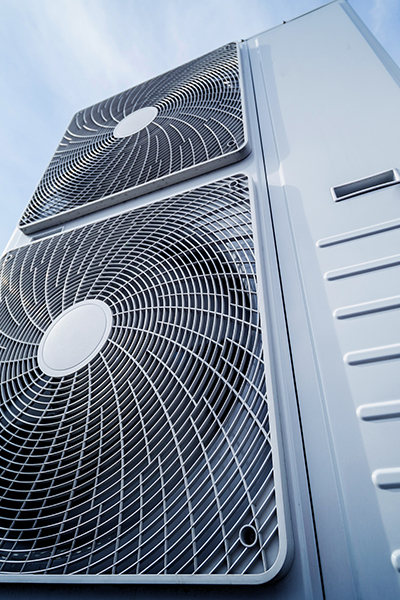
Heat Pumps
Heat pumps are used to transfer low temperature heat from a renewable source such as ambient air, water or the ground and raise it to a higher, more useful temperature using a refrigerant cycle.
Typically, for every kWh of energy used to operate an electrically-driven heat pump, the resulting useful heat output is between 3kWh and 4kWh.
Heat pumps provide an energy efficient form of space heating, reducing running costs and resulting in carbon savings of over 30% when compared with an efficient gas boiler. They can also be used for cooling by reversing the refrigerant cycle.
Some products can provide heating and cooling simultaneously by removing heat from a part of the building that is too hot, and using it to heat a part of the building that is too cold.
There are three types of heat pump, depending on where they get their heat from: air source, ground source and water source.
Heat Pump Business Benefits:

Carbon savings of over 30% (compared to an efficient gas boiler)








